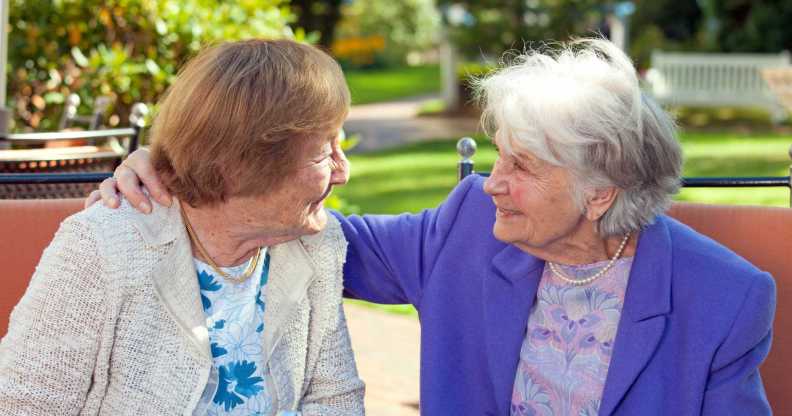People aged over 65 among most sexually fluid in UK, study finds

Women over the age of 65 are amongst the most sexually fluid, research has found. (Canva)
New research has found women over the age of 65 are among the most sexually fluid groups in the UK.
The study, co-authored by academics at Lancaster University and the University of Alberta in Canada, observed nearly 23,000 people twice over a six-year period by analysing data from the UK household longitudinal study.
Professor Yang Hu, of Lancaster University, said: “We carried out this research because although we knew that sexual identity is fluid, we don’t know just how fluid it is.
“We also wanted to know how this fluidity varies across different demographic groups.”
Published in research journal Demography at the beginning of June, the researchers found 6.6 per cent of people, around one in 15, changed their sexual identity during the course of the six-year period.
The groups with the biggest mobility in terms of sexual identity were those aged 16–24 (7.9 per cent) and adults aged 65 and over (7.4 per cent), whilst those in other age groups – 25 to 64 – ranged between five and 6.2 per cent.
Dr Nicole Denier, from the University of Alberta, noted that the results challenge the idea that sexual fluidity is more common in younger age groups.
She said, as quoted by The Guardian, that assumptions that fluidity is only prevalent in younger age groups has lead to “much research focusing on adolescence as a critical stage of sexual identity development”.
“But our findings suggest that changes in sexual identity represent an equally worthy research topic among the elderly and indeed across the full lifespan,” she said.
Non-white and less educated people found to be more fluid
The sexuality with the biggest sexual identity mobility was those who self-identified as bisexual, had other identities or preferred not to disclose their identity.
By contrast, the lowest sexual identity mobility was observed in those who identified as heterosexual, with only only 3.3 per cent changing their identity – just 0.2 per cent changing to gay/lesbian, 0.8 per cent to bisexual, 0.6 per cent to other identities and 1.7 per cent to “prefer not to say”.
The research also found non-white people and individuals who are less educated were also more likely to report a change in their sexual identity.
The rate for non-white people was significant, with 15.5 per cent of ethnic minority individuals experiencing some form of sexual identity mobility, more than three times the rate for white people (five per cent).
Men, however, were 10 per cent less likely to report a change than women.
Whilst the data is comprehensive, it does not explain why certain demographics experience more sexual mobility than others.
Commenting on the fact men are less likely to be sexually fluid, Denier said: “Existing theories suggest that rigid norms around ‘masculinity’ may mean that men may be less flexible and fluid in their sexual identity expressions.”
In terms of ethnic and racial minorities and those who are less educated, Denier said those groups could be “more susceptible to multiple forms of social pressure and minority stress, which may sway their identification and identity reports”.
Speaking with The Guardian, Ibtisam Ahmed, head of policy and research at LGBT Foundation, welcomed the research.
“We hope that this research can challenge several societal assumptions – [and raises awareness] that people can come out more than once, that this is common, and that this should be respected as part of someone’s journey,” Ahmed said.
“This research also challenges one of the assumptions that is prevalent in mainstream media/society at the moment that LGBTQ+ people tend to be younger or that it is seen as a ‘trend’ in young people,” Ahmed continued.
“This research clearly highlights that coming out can and does happen at any stage of life.”
How did this story make you feel?

